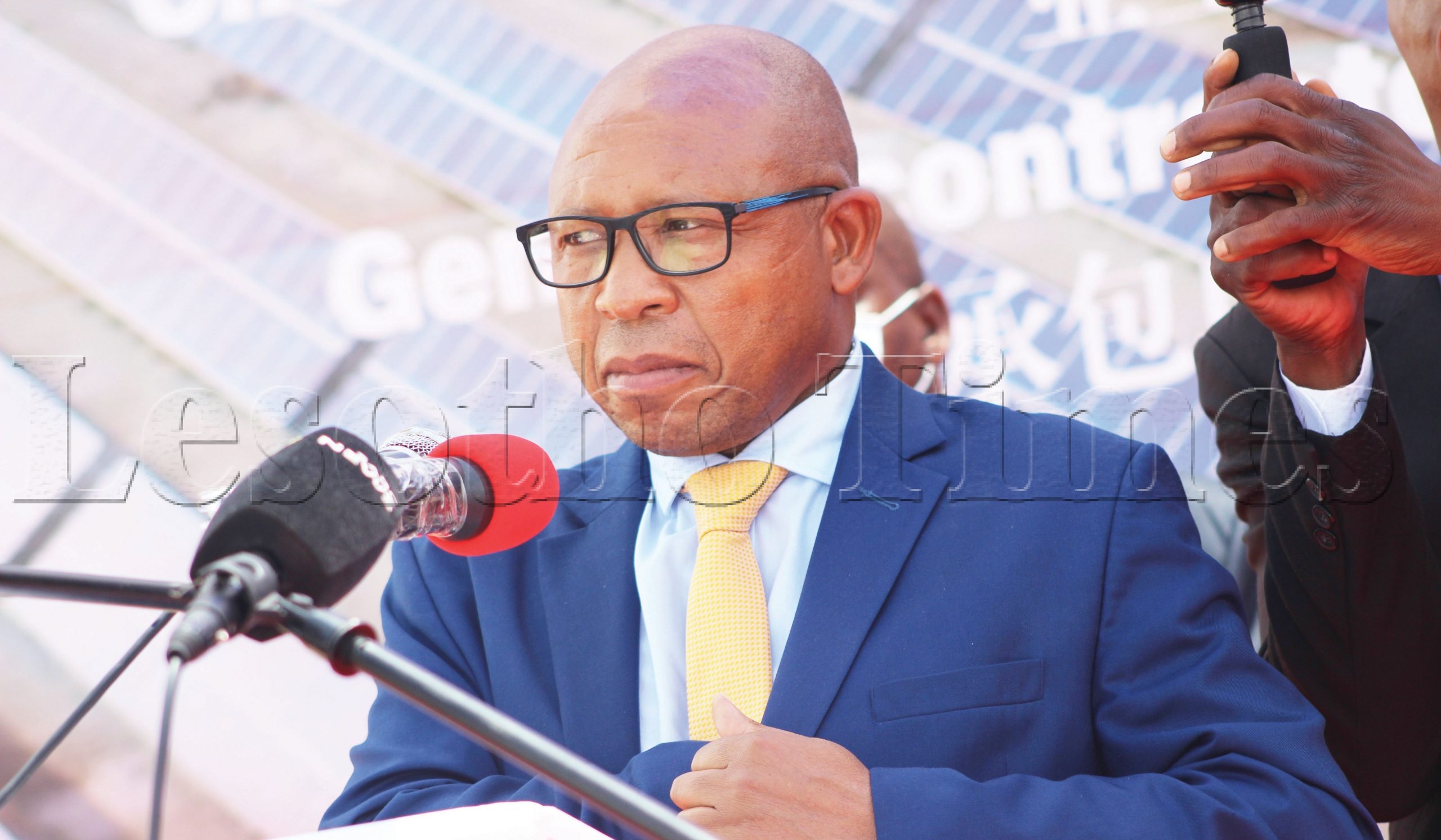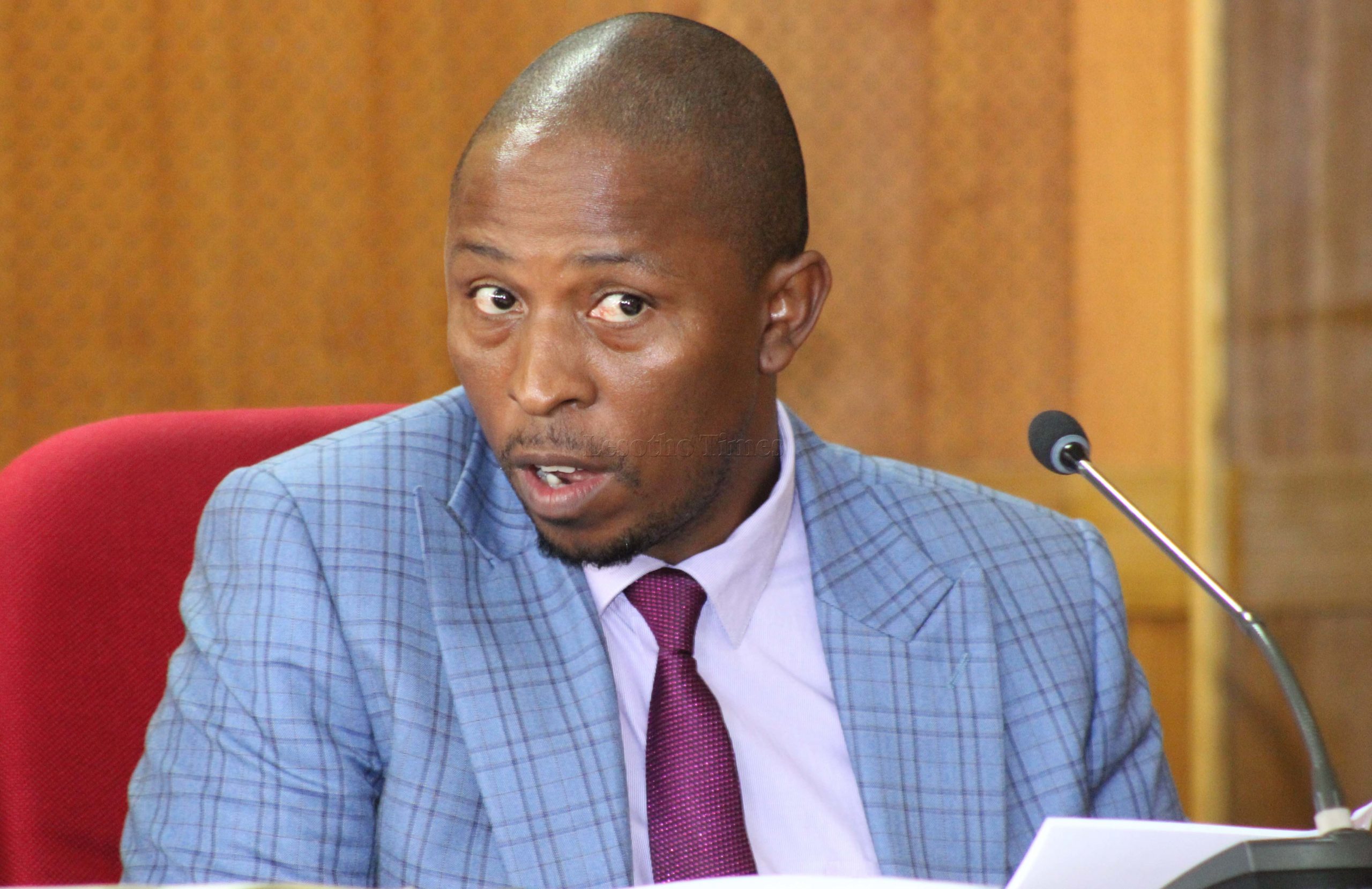
- as Covid-19 infection rate declines from 47 percent to 31 percent,
- but acknowledges infection rate still way above the WHO’s “acceptable” 5 percent rate.
Bereng Mpaki
PRIME Minister Moeketsi Majoro has relaxed the Covid-19 lockdown restrictions to allow a host of economic activities to resume amid indications that the rate of Covid-19 infections had decreased to 31 percent from an all-time high of 47 percent last month.
Dr Majoro however, warned that the infection rate was still much higher than the World Health Organisation (WHO)’s ‘acceptable’ rate of 5 percent.
He therefore urged the nation to continue observing strict public health regulations including refraining from unnecessary travel, wearing face masks at all times in public and maintaining social distancing.
Lesotho had been on a hard lockdown since 14 January 2021. It had initially been slated to end on 27 January 2021 but on that day, it was extended to 3 February 2021 amid revelations by the National Covid-19 Secretariat (NACOSEC) that the infection rates were still too high.
As of yesterday, Lesotho had recorded a cumulative total of 8900 infections and 172 deaths. Last Wednesday when the hard lockdown was extended, the country had recorded a cumulative 8047 infections and 146 deaths.
The country had also been placed in the red category of restrictions which meant the closure of all borders and a ban on cross-border travel except for essential services and returning residents.
There were even stricter restrictions on inter and intra-district travel with people expected to observe a new curfew from 7pm until 6am. Political gatherings were completely banned as were church services and schools. The sale of liquor was also banned while restaurants and clothing shops were closed.
But in a televised address to the nation on Tuesday night, Dr Majoro announced that some of the restrictions had been eased with effect from yesterday.
He said the country had now been placed in the orange category due to the fall in the infections rate.
“The positivity rate of infections declined from 47 percent during the week from 3- 9 January 2021 to the current 31 percent,” Dr Majoro said, adding, “but this is still higher than the required 5 percent. The deaths are still high”.
“The spread and severity of risk of the coronavirus is now at a decreasing rate. The government has therefore resolved to place the country under a relaxed lockdown under the orange category of mitigation measures,” Dr Majoro added.
In terms of the revised orange stage restrictions, Dr Majoro said the curfew, which was in force from 7pm to 6am, would now be observed from 9pm to 5am.
He said churches were to resume services but with no more than 25 percent of their normal congregants. All congregants will be required to wear face masks at all times even when singing in church, he said.
He said more relaxed measures would be issued by NACOSEC.
NACOSEC has since released the guidelines to be observed under the orange stage restrictions.
Schools will remain closed except for students sitting for public examinations.
Street vending is now permitted albeit under strict public health guidelines including social distancing. The development is a welcome relief to vendors who had protested the ban and even taken the government to court to reverse the ban. The case is pending before the High Court. It will now be of academic interest following the lifting of the ban.
Textile factories have also been allowed to resume operations at 50 percent of their normal capacities with workers expected to do day and night shifts.
Restaurants and fast-food outlets are allowed to open from 8am to 4pm providing takeaway meals only.
Hotels and hospitality establishments are allowed to operate at full capacity while observing all public health regulations.
There is relief for imbibers after the ban on the sale of alcohol was eased to allow all liquor traders to operate from 10am to 4pm from Monday to Thursday. However, they are only allowed to sell liquor on a takeaway basis.
Clothing outlets are now permitted to open from 8am to 4pm. Hair salons have also been allowed to reopen.
Outdoor and indoor entertainment activities, public and recreational areas as well as sporting activities remain banned however.
The borders remain closed and cross-border travel is still banned except for essential services and returning residents.







